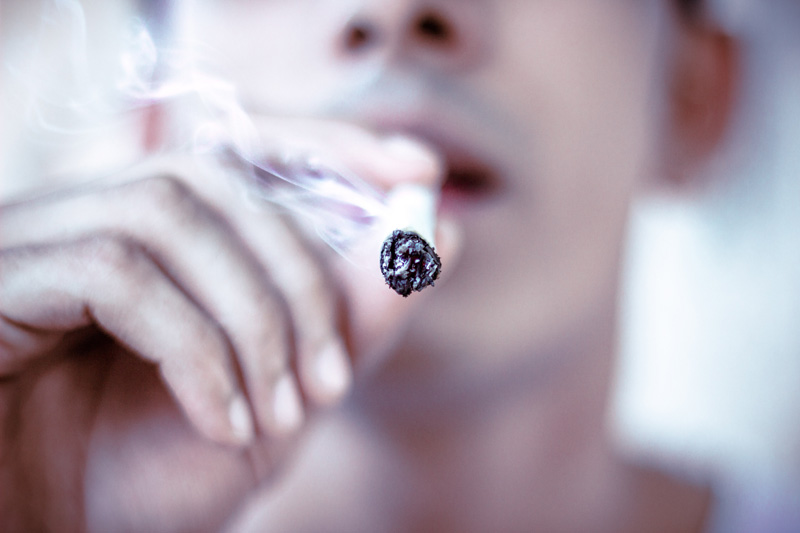Written by Christian Hazes, Staff Writer
I have had the privilege to enrich my life with numerous fascinating trips. Be it the vast and pristine landscapes of arctic Norway or the quaint, calm and sun-soaked French villages; every journey is unique and provides a different experience. Lately, however, I started to realize that all these trips have one thing in common: that there is one ever-recurring question that is dropped shortly after telling people that I was born and raised in Amsterdam. I am talking about the simple and obvious question, fired at me before I can finish my sentence:
“How is the trip?”
I refrain from snapping and answer politely that the trip is amazing, ditto for the country and people, before being bluntly interrupted again:
“No dude, I’m talking about the drugs! You’re from Amsterdam!”
In my mind, images of me facepalming myself play; I ought to know by now this is to be expected. It’s proof that the Netherlands, and predominantly Amsterdam, are still the very embodiment of everything that comprises vice and complete liberty for many outsiders. Question is, for how long will I be confronted with drug-driven curiosity?
Without a doubt, the marriage of Amsterdam with weed is largely a result of the coffeeshop – and they are an endangered species these days. Despite still being omnipresent in the typical streetscape of Amsterdam, the number of coffeeshops is in swift decline.
In 1995, there were 350 coffeeshops in Amsterdam. Since then, 183 Amsterdam coffeeshops had to shut up shop, predominantly due to political pressure from governing bodies. That’s about half. In The Hague, the Dutch political capital, ferocious plans have been devised to combat the soft drugs industry in the Netherlands. However, in the case of Amsterdam, the approach has merely led to the deterioration of the situation and, due to its numerous adverse effects, cannot only be characterized as deeply flawed.
Amsterdam has a reputation for being one of the most liberal and progressive places in the world, which has a long history. The Netherlands was a hub for early enlightenment thinkers, among them Baruch de Spinoza, Erasmus of Rotterdam or Hugo Grotius. Already in the 17th century, the Dutch embraced individualism and had a dynamic entrepreneurial class. And the harbor town had state-enforced laws to make its diverse citizenry engage in their different religious practices and respect other faiths. So one would assume that some core liberal principles such as tolerance are embedded in Dutch culture.
Notwithstanding the fact that there is some truth to the claim, this point of view is not wholly correct. Especially in relation to the present-day Netherlands and Amsterdam. When it comes to soft drugs, tolerance has its limits, and they are tighter than one might expect. Many refer to the supposedly detrimental effect of consumption on society and particularly abhor the cannabis industry that attracts tourists to Amsterdam en masse. Amsterdammers are sick and tired of tripping over and confronting the near-comatose tourists that overflow the streets. Even Eberhardt van der Laan, the beloved-and-habitually-permissive former mayor expressed his concerns back in 2014, saying to the then-incumbent mayor of London, Boris Johnson, that he should visit Amsterdam and watch his compatriots loudly running around scantily clad. Despite the subliminal mocking sentiment, it is clear that the situation is getting out of hand and it is hardly to be denied that the soft drugs industry is mainly a tourist attraction.
And yet, the number of tourists that visit the Dutch capital is rising. One in four of these tourists will visit a coffeeshop. The perceived negative effects of soft drugs and surging drug tourism in the Southern parts of the Netherlands, have pushed the Dutch government to come up with an action plan to eradicate drugs tourism, and reduce the scale of the soft drugs industry. A policy that forced many coffeeshops to close makes it compulsory for coffeeshops located in Amsterdam to be at least 250 meters away from schools. Allegedly, young people would then be less exposed to soft drugs. Furthermore, a project called “Project 1012” aims at improving the image of the area of de Wallen, the center of Amsterdam’s Red Light District, required the closure of multiple coffeeshops. Also worth mentioning, the city council of Amsterdam employs a “no-growth policy” which means that the city will not give out any licenses for new coffeeshops at all.
Amsterdam’s coffeeshop supply is rapidly declining as a result of the advocacy of those that seek the end of the weed industry. On the other hand, it’s not blowing smoke if we say that the path chosen by the Dutch government is not heading in the right direction. In part because the demand for coffeeshops is skyrocketing to unparalleled heights.
But isn’t the elimination of competitors a blessing for the surviving coffeeshops? At first glance, yes. In reality, the decimation of Amsterdam-based coffeeshops has numerous grave drawbacks. The remaining coffeeshops are unable to facilitate the enormous demand. Increased appetite for the good stuff culminates in several undesirable consequences, such as people smoking on the streets due to a lack of space and coffeeshops turning into cannabis supermarkets instead of being cozy and serving a social function. Moreover, imbalanced supply and demand increases the number of illegal street dealers and this exacerbates the degeneration of neighborhoods; exactly what Amsterdam was trying to prevent. Lastly, the amount of cannabis a shop is allowed to have in store is limited, so shops must resupply multiple times on a busy day, increasing the probability that couriers will be robbed. The current policy approach is simply riddled with cracks.
Amsterdam prevails when it comes to attracting tourists and having a reputation for being one of the most tolerant, open-minded and liberal places in the world. So the only way I can see to avoid the “How is the trip?” question is to never bring up my roots, but I’d rather do that than see the city continue on its restrictive path.



